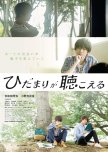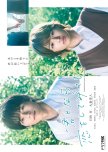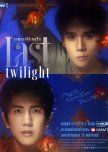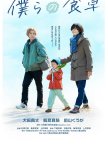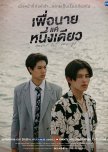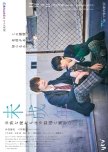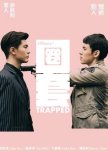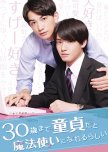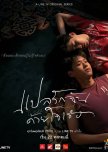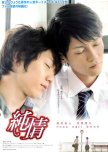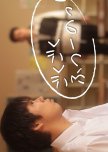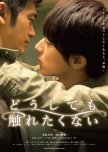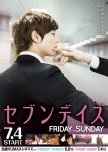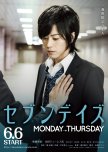- Nederlands
- 日本語
- ภาษาไทย
- Français
- Oorspronkelijke titel: ひだまりが聴こえる
- Ook gekend als: I Hear the Sunspot
- Scenarioschrijver: Kawasaki Izumi
- Regisseur: Yaegashi Fuga, Makino Masaru, Harashima Takanobu
- Genres: Romance, Jeugd, Drama
Waar je Hidamari ga Kikoeru kunt bekijken
Subscription
Cast & Credits
- Nakazawa MotokiSugihara KoheiHoofdrol
- Kobayashi ToranosukeSagawa TaichiHoofdrol
- Usa TakumaYokoyama Tomoki / "Yoko"Bijrol
- Natsuki OmiYasuda Satoshi / "Yasu"Bijrol
- Nishida NaomiSugihara RyokoBijrol
- DendenSagawa GenjiBijrol
beoordelingen

a coming of age story with 3 protagonists
Overall: the first half of the series had me hooked as a romance/coming of age. However, the addition of a 3rd protagonist and the lack of romantic progression changed the focus of the story which I did not enjoy. I think I read the first volume of the manga a long time ago and I've seen the prior 2017 movie but I'm basing this review on the 2024 series' own merits. 12 episodes about 25 minutes each. Aired on GagaOOLala https://www.gagaoolala.com/en/videos/4485/i-hear-the-sunspot-2024-e01 and iQIYI https://www.iq.com/play/i-hear-the-sunspot-episode-1-2556woqrs6s?lang=en_usContent Warning: punch, grief/mental health struggles
Watch Suggestions (to focus on the m/m leads)
- watch episodes 1-6
- skip episode 7 (can watch the 40s recap the beginning of ep 8)
- start episode 8 at 14 minutes
- start episode 9 at 7 minutes
- in episode 10 skip 19:30- 21:40
- watch episode 11 beginning to 4:20 and 15 to the end
- watch episode 12 at 12 minutes to the end
What I Liked
- dynamic between the leads (in the beginning half, then they needed to communicate)
- acting
- representation with a character who has hearing loss, showing how even people who are trying to be kind can isolate a person
- generally not a fan of extended flashbacks but episode 2 and the beginning of episode 3 gave us critical background information to understanding the characters and I'm glad we had this towards the beginning of the series
- that Taichi sought communication in episodes 2 & 5
- sweet moments like fishing together
- production value (some really gorgeous shots in the beginning episodes that conveyed things by showing like opening the curtains or how the basketball court went dark and empty, also good shots in episode 11)
Room For Improvement
- started the series with a flash forward and also some of the ominous voice overs
- the camera blocked kiss, I don't care if that's how it was in the manga, we are at a different time and place from when the manga was written and I expected a non camera blocked kiss
- Taichi was written to seek communication but then was unbelievably dense and didn't communicate any more
- Maya's backstory was way too late and the way she was written did not evoke empathy, the writers did her character dirty
- too many flashbacks in episode 9
- anti climactic ending, the finale had a protagonist talking with other characters for the entire first half of the finale
Vond je deze recentie nuttig?

Recipe: Loveable characters, relatable stories and heartwarming messages.
20+ minutes long episodes that leave you with hours of reflections and open you up to perspectives you might have never thought about.What the drama does great is showing the variety of issues people who are hard of hearing might have. They are not monolit group - depending on their personal experience, personalities, social circles, environment, they might deal with different hardships. And that’s when communication enters the chat! One of the clear messages of the drama was to speak up - whenever you need something, do not understand something, are curious about something, dislike or like something.
While the hearing disability was obviously on the forefront of the story, the plot was not limited to that. The writing was not stuck in the bubble of presenting the struggles of the minority - for me the writing was clear in showing that even though they have their own unique problems, they also face mundane issues and daily hiccups like any other person. There is far more that we share, than what differs us.
And that’s where the two mail leads shine - Kohei and Taichi obviously shared the same world, and they made an effort to stay connected. Kohei did not blame Taichi for mistakes he made that were the result of his lack of knowledge. Taichi was trying to see the world from Kohei's perspective and understand potential hardships that he himself never had to deal with on a daily basis. It was such a heartwarming story of two people fitting so naturally together, but also working hard to improve their understanding of the other’s point of view.
Even though their connection was clearly deep and obvious for anyone that was watching, it’s hard to call this drama a romance. At some point the writing focuses a little bit too much on Taichi and his personal journey of self discovery, making Kohei seem more like a supporting character in his own story. I’m not sure how I feel about drama that centers around representation sidelining the character that is the key to said representation.
As for the supporting characters - Taichi's friends were amazing. They’ve got exactly as much screen time as needed for me to see them as real people with distinctive personalities and not just fillers for the screen, but I never felt like we are wasting time on them. But then, I do feel like Maya’s story could have been improved. On one hand (this might sound weird), I truly appreciate how they were not afraid to show her as a complete egocentric asshole who is unable to see anything outside of her own perspective, because yes, people with disabilities also have personality flaws. On the other hand, I think they spent too much time on her “annoying phase” and the flashbacks, explanation and development happened way too late.
Performances though - so good. Nakazawa Motoki aced the surprise and amazement every time he looked at Taichi. Kobayashi Toranosuke perfectly presented how bad at hiding his feeling Taichi was, but also how he failed to understand his own emotions, while also understanding others.
On technical aspects, I am still mad about the “fake kiss” camera angle. I do not care how accurate it was for adaptation - some things that work on a still drawing will not on a moving film. You need to adjust to the media you are using.
Overall, with flaws, yet great drama. It’s for sure more than romance, I’d even say romance takes a backseat for the majority of the runtime and I’m not mad about it. Adding one or two episodes to give a bit more fulfilling closure to the relationship the boys had would be preferable, but even with a bit rushed ending, I’m just happy with the journey I’ve got to experience.
Vond je deze recentie nuttig?

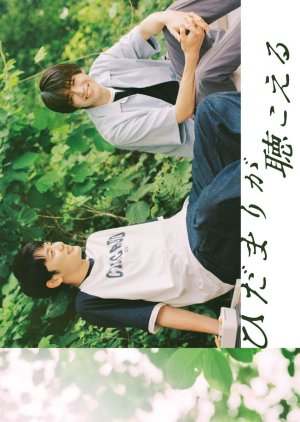

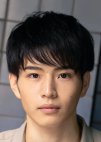





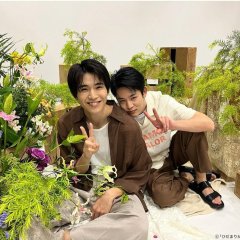
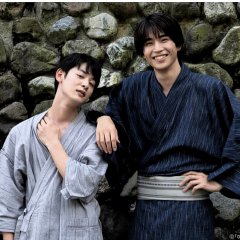
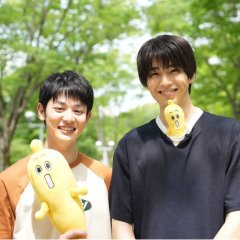
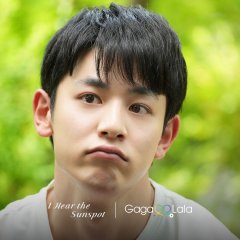
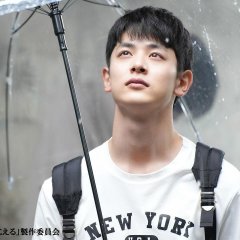
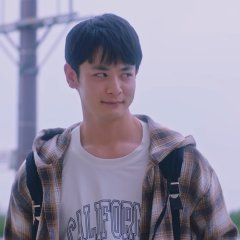
 2
2